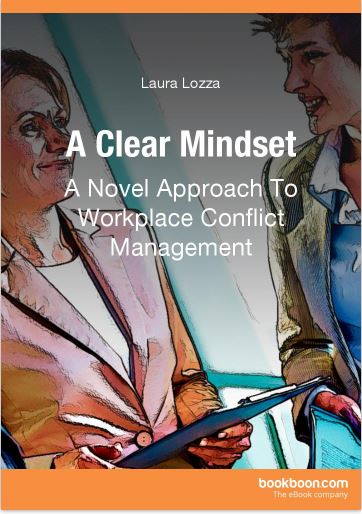3 Reasons Why Most Leaders Goof Up When Dealing With Conflicts

All conflicts originate from a difference in opinions. A different opinion need not be a provocation or become a conflict, yet we often feel personally attacked and tend to react in one of three classical ways: we find faults in the other opinion, we display a defensive/aggressive behavior or we insist on explaining our logic. In all three cases, we let our pre-conscious biases hijack our behavior. Not surprisingly, this seldom produces constructive outcomes, and a simple disagreement easily escalates into an unproductive conflict. But there is an alternative: we can learn to transform disagreements and conflicts in open dialogue, mutual learning, and positive change.
Dealing with conflicts
Conflicts and disagreements make us all feel uncomfortable. Even the best business leaders admit that they are not always able to be at their very best when faced with a disagreement in a critical area of their influence. Why?
Recent advances in neuroscience help shed some lights on this: we all have automatic pre-conscious reflexes that tend to bias our interpretation and hijack our behavior. In particular, when it comes to meeting a different opinion, everybody experiences 3 types of “biases”.
The Negativity Bias
Our brains are programmed to promptly spot risks and threats. When faced with a different opinion, we are faster in spotting its flaws than its merits. Our instinctive reflexes induce us to remove, weaken or demolish the evident flaws. By the time we become conscious of our irrational negativity, we have usually already ignited a very ineffective and counterproductive conversation, trying to invalidate the other opinion.
The Ego Bias
As part of the same protective/defensive system, we also tend to quickly label any unexpected or unfamiliar situation as a potential threat. This pre-conscious reflex activates a physiological reaction of alert (e.g. accelerated heartbeat). If we let this reflex drive our behavior, we become defensive/aggressive.
Before we know it, we have moved the discussion away from the issue at hand and are busy with a useless and unproductive battle (who has more data, alliances, power, etc.), trying to win.
The Rationality Bias
It is a deeply rooted belief, but actually erroneous, that logic reasoning will give us “the universal truth”. Nobel Laureate Daniel Kahneman explains how we do not form opinions based on logic reasoning, but we rather use logical reasoning to prove our initial intuitions.
Different people might construct two perfectly logical explanations of their different opinion. Unaware of this, we may insist on explaining each our own logic, without trying to gain insights or learn from the other. We forget our natural curiosity; we do not listen, hence we do not learn. We simply try to prove that we are right.
Learning to recognize our biases is the first step to transforming our reaction to disagreements and conflicts into conscious, constructive and influential behavior.
This article is based on the eBook A Clear Mindset – A Novel Approach To Workplace Conflict Management by Laura Lozza:
The C.L.E.A.R.™ Mindset Method provides a framework of five simple steps to help us identify when and where these biases occur, how to overcome their influence and take full control of how we choose to behave, in order to strengthen our influence and transform disagreements into opportunities for learning and positive change.
More interesting articles for you are:
- How to Successfully Resolve Conflicts in Your Company
- Avoiding Conflicts with Employees: “Foresight is Better Than Hindsight”
- How Business Benefits by Eliminating Organisational Conflicts
[bookboon-recommendations id=”e4886f97-7441-44f1-9e55-45c5c664acea” title=”You might also find these books interesting:”]





